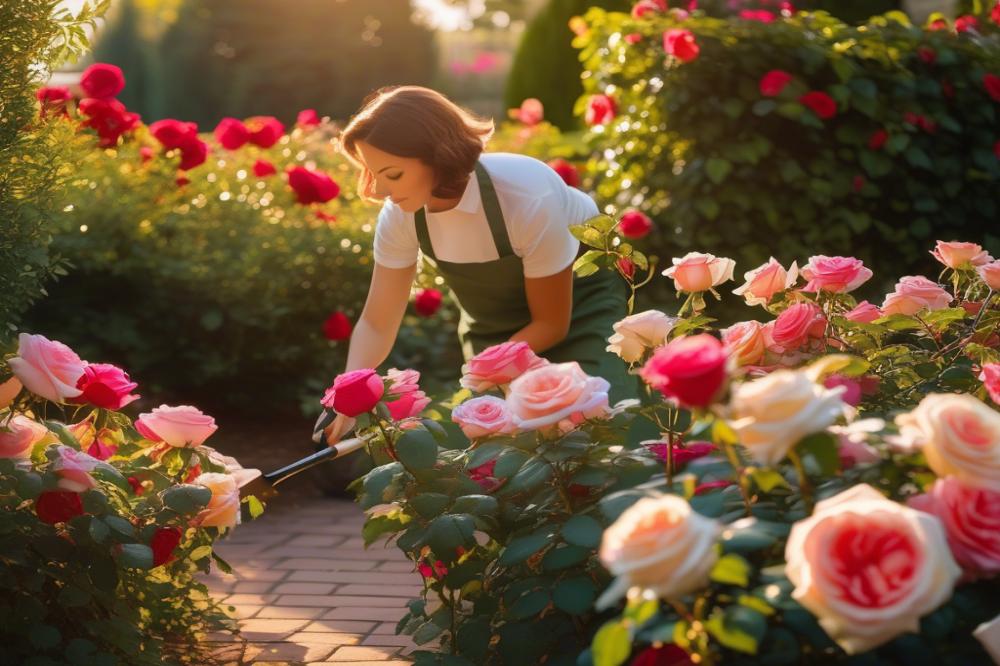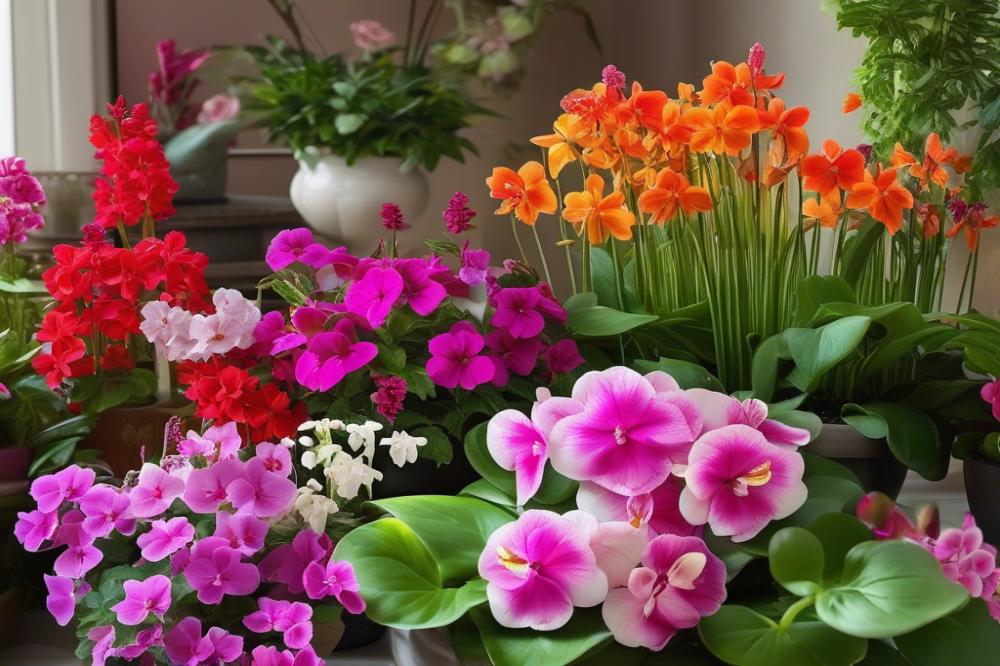Introduction
growing roses can be a rewarding hobby. These stunning blooms brighten gardens with their colors and fragrances. However, proper care is essential for their health and beauty. One key aspect of rose cultivation is fertilization. This process provides vital nutrients that plants need to thrive. Without it, roses often struggle to grow strong and vibrant.
The best fertilizers for roses play a crucial role in maintaining their health. Different types of roses have varying nutritional needs. Therefore, selecting the right fertilizer can have a significant impact on their growth. It helps in boosting blooms and improving foliage. When you use the proper nutrients, you promote lush, colorful flowers that will impress anyone who sees them.
Caring for these plants goes beyond just watering and pruning. Understanding when to apply fertilizers is equally important. Timing can mean the difference between a disappointing season and a garden bursting with life. For those passionate about their gardens, knowing this information can elevate their efforts. With the right tips and strategies, you can achieve the awe-inspiring rose garden of your dreams. The journey starts with understanding how to nurture these beautiful plants through nutrition. Remember, healthy roses begin with informed choices about fertilization.
Fostering such vibrant growth requires knowledge and action. Many gardeners have found success with specific fertilizers. You can join them by researching and selecting your options wisely. By paying close attention to your roses’ needs, you pave the way for their vibrant future. Be sure to explore #anchor_text_1# to find the right products for your roses. Additionally, consider reading more about #anchor_text_2# to enhance your knowledge on this topic.
Understanding Rose Nutritional Needs

Roses thrive on a balanced diet of essential nutrients. Among the most important are nitrogen, phosphorus, and potassium. These three elements make up the cornerstone of rose nutrition. Nitrogen promotes healthy foliage and overall growth. It boosts green leaves, allowing your plants to grow strong and vibrant.
Phosphorus supports root development and flowering. A well-developed root system helps roses absorb more water and nutrients. It also encourages the production of beautiful blooms. Potassium plays a vital role in strengthening the plant’s immune system. Stronger plants can resist diseases better and endure environmental stresses.
Micronutrients shouldn’t be overlooked. Elements like iron, magnesium, and calcium are just as crucial, even though they are needed in smaller amounts. Iron helps with chlorophyll production, which is vital for photosynthesis. Magnesium plays a significant role in nutrient absorption, making it easier for roses to thrive. Calcium strengthens cell walls, contributing to the overall health of the plant.
Soil composition directly impacts nutrient availability. Well-drained, loamy soil is ideal for roses. It holds enough moisture while allowing excess water to flow away. Testing your soil’s pH is a smart move. Roses typically prefer a slightly acidic to neutral pH of around 6.0 to 6.8. If your soil is too acidic or too alkaline, nutrient absorption can become blocked.
Organic matter also enhances soil quality. Amendments like compost improve soil structure and fertility. They provide essential nutrients and encourage beneficial microorganisms. These tiny allies break down organic matter, making nutrients more accessible to plants.
Understanding rose nutritional needs sets the foundation for success in your garden. A garden rich in the right nutrients leads to healthier plants and more abundant flowers. With attention to soil and the application of the right fertilizers, you can create a thriving environment for your roses.
Types of Fertilizers for Roses

Choosing the right fertilizer for roses is vital for their growth. Gardeners often debate between organic and synthetic options. Organic fertilizers come from natural sources. They release nutrients slowly and help improve soil health. Many people prefer them for their sustainability. In contrast, synthetic fertilizers offer immediate results. They contain concentrated nutrients that can boost growth rapidly. Each type has its advantages, and understanding them can be beneficial.
Granular Fertilizers
Granular fertilizers are popular among rose growers. They come in dry pellets or granules. These products are easy to apply. Spread them on the soil surface or mix them in. They gradually release nutrients over time. This slow release can help prevent over-fertilization. When used correctly, they support blooming and overall plant health.
Liquid Fertilizers
Liquid fertilizers act quickly. They dissolve in water and can be absorbed by plants almost immediately. This type is perfect for giving a quick nutrient boost. Gardeners usually apply liquid fertilizers during the growing season. Spraying them directly on leaves enhances absorption. However, constant monitoring is crucial to avoid harming the plants.
Slow-Release Fertilizers
Slow-release fertilizers are formulated to provide nutrients over an extended period. They can last anywhere from a few weeks to several months. This makes it easier for gardeners, reducing the frequency of applications. Using a slow-release option can help maintain steady growth and blooming. They are generally less likely to cause nutrient burn compared to other types.
Compost-Based Fertilizers
Compost-based fertilizers are another excellent choice for roses. They improve soil structure and provide a range of nutrients. Homemade compost is rich in organic matter. This can enhance microbial activity in the soil, promoting healthy roots. Applying compost is simple. Just spread it around the base of the plants. It not only feeds the roses but also benefits the entire garden.
Each fertilizer type has its place when caring for roses. Understanding their different characteristics can lead to better growth and more vibrant blooms. Choosing wisely can make all the difference in your gardening success.
Best Fertilizers Recommended for Roses

Choosing the right fertilizer for your rose plants can make a significant difference in their growth and blooming. Several brands offer outstanding products that cater to the unique needs of roses. Here’s a curated list of some top fertilizers to consider.
1. Miracle-Gro Water Soluble Rose Plant Food
This popular fertilizer is known for its quick effect. It has a balanced formula of 18-24-16, providing essential nutrients that roses thrive on. It works best for established roses, especially during early spring when growth begins. Just mix with water and apply every 4 to 6 weeks for impressive results.
2. Osmocote Smart-Release Plant Food
Osmocote offers a unique controlled-release option that ensures a steady supply of nutrients. Its 14-14-14 formulation is effective for a variety of rose types, from hybrid teas to climbers. Apply it in the spring for optimal results throughout the growing season. This fertilizer is ideal for hands-off gardeners.
3. Dr. Earth Organic Fertilizer
For those looking for organic options, Dr. Earth is an excellent choice. Its 4-6-2 formula is packed with natural ingredients. Use it during the planting stage to give your roses a healthy start. As it nourishes from the roots up, it suits both young and established plants well.
4. Espoma Rose Tone
This fertilizer contains a blend of organic and natural ingredients, providing a 4-3-2 nutrient ratio. It’s especially beneficial during the growing phase. Using Rose Tone in early spring promotes vibrant blossoms. Many gardeners swear by its ability to improve overall plant health.
5. Bayer Advanced 2-in-1 Systemic Rose and Flower Care
This unique product not only fertilizes but also protects against pests. It has a nutrient ratio of 15-7-7. Apply it at the start of the growing season to help roses combat common issues. Its dual purpose makes it a favorite among those who wish to simplify their gardening routine.
Choosing the Right Fertilizer
When selecting a fertilizer, consider the type of roses you have. Hybrid teas, floribundas, and climbers may have different nutrient needs. Also, assess the growth stage of your plants. Young roses require more nitrogen for leaf growth, while blooming roses benefit from higher phosphorus levels.
Timing is crucial. Fertilize in the spring as new growth appears and again after the first blooms for continued vigor. Lastly, always read the instructions. Applying the right amount prevents burning the plants and encourages healthy growth.
When to Fertilize Roses

Timing is crucial for fertilizing roses. The best period to start is early spring. Apply fertilizer when the new growth appears. This signals that your rose bushes are waking up after winter. You want to feed them just as they begin to grow. Use a balanced fertilizer specifically for roses or flowering plants. This provides the nutrients they need to thrive.
Summer is another important time to give your roses a boost. As blooms begin to fade by mid-summer, they may need more nutrients to support continued growth. If you notice that the flowers aren’t as vibrant or abundant, a second application might be necessary. A slow-release fertilizer works well during this time. It nourishes the plants gradually, helping them stay strong throughout the hotter months.
Fall is a delicate season for roses. While it’s not the best time for heavy fertilization, some gardeners choose to add a light dose of fertilizer in early fall. This practice can prepare the plants for the coming winter. However, avoid fertilizing late in the season, as new growth can become damaged by frost. The focus should be on helping them harden off instead.
Watch for signs that your roses need more nutrients. Yellowing leaves can indicate a nutrient deficiency, especially nitrogen. A lack of blooms can also suggest your plants are feeling a bit hungry. When roses appear straggly or weak, they might be asking for help. By paying attention to these signs, you can ensure that your plants remain lush and beautiful.
In summary, knowing when to fertilize your roses can make a significant difference. Spring, summer, and early fall each have their roles in maintaining healthy growth. Keep an eye on your plants, and respond to their needs to enjoy a flourishing rose garden all season long.
Application Techniques for Maximum Effectiveness
Applying fertilizers correctly can really boost your rose plants. There are several techniques to consider when feeding your roses. Broadcasting is one method. This involves spreading granular fertilizer evenly over the soil, allowing nutrients to reach the roots.
Side dressing offers another effective option. With this technique, you apply fertilizer in a band along the plant row. It’s beneficial because it targets the root zone directly, maximizing nutrient uptake.
Foliar feeding is a unique approach too. By spraying a liquid fertilizer directly onto the leaves, you can provide essential nutrients quickly. Roses can absorb these nutrients through their foliage, which is especially useful during growth spurts.
Watering plays a vital role when you fertilize. Nutrients need moisture to move through the soil and reach the roots. Always water your roses before and after applying fertilizer. This simple step helps avoid root burn and ensures healthy growth.
Consider soil conditions as well. Healthy soil can better retain nutrients. If your soil is too compact or dry, it might not absorb fertilizers effectively. Loosening the soil with a garden fork can improve aeration and help nutrients penetrate deeper.
Timing your fertilization is also crucial. Early spring is often the best time to start, just before new growth begins. Roses need that initial boost to thrive. Follow up with additional feedings as the growing season progresses.
The right techniques and conditions will give your roses the nutrition they need. By using tailored approaches such as broadcasting, side dressing, or foliar feeding, and by pairing them with proper watering practices, your rose garden will flourish.
Common Mistakes to Avoid
Many rose growers make mistakes with fertilizers that can harm their plants. A frequent error is over-fertilizing. Applying too much fertilizer can burn the roots. It also leads to excessive growth without blooms.
Using the wrong type of fertilizer is another common pitfall. Roses need specific nutrients. Not all garden fertilizers cater to their needs. Always read the package carefully before purchasing.
Pay attention to the timing of your applications. Many fans of roses fertilize too early in the spring. This can encourage new growth that might not survive late frosts. Instead, wait until after the last frost date.
Monitoring the health of your plants is crucial. Yellowing leaves can indicate too much nitrogen. Wilting can suggest that roses require hydration, not added nutrients. Watch for signs of stress closely.
Regularly check the soil’s condition. An imbalanced soil pH can affect how roses absorb nutrients. Conduct a soil test if unsure about the nutrient levels.
Roses thrive when given the right balance of nutrients. Consistently observe blossoms and leaves for changes. When in doubt, seek advice from local gardening experts or clubs. A little diligence can prevent large issues from developing.
Final Thoughts on Fertilizing Roses
Using the right fertilizers for roses is crucial to their growth and beauty. Timing is just as important as choosing the best products. When applied correctly, fertilizers can help your roses thrive, producing stunning blooms and lush foliage. Don’t underestimate the power of proper nutrition for your plants.
Rose growers should feel encouraged to experiment with different types of fertilizers. Each garden has its unique conditions, and what works in one setting may not yield the same results in another. Pay attention to how your roses respond to various fertilizers throughout the growing season. Adjusting your approach based on your specific environment can lead to remarkable outcomes.
Consider the impact proper fertilization has on your roses. Healthy plants develop stronger stems and vibrant flowers. Beauty in your garden often relies on giving your roses the nutrients they crave. By following general guidelines and making personalized adjustments, you can bring out the best in your garden.
Always remember to monitor your plants closely. This allows you to see what they need and when. A little observation can go a long way. This journey is about learning and adapting to what your roses want. With time, you’ll become more attuned to their needs. In the end, your efforts will pay off in the form of breathtaking blooms.
So, embrace the process. Explore various fertilizers and stay mindful of timing, as both can dramatically enhance your gardening success. With dedication, you can achieve the stunning rose garden you’ve always dreamed of. For more insights, check out #anchor_text_3# and #anchor_text_4#.



